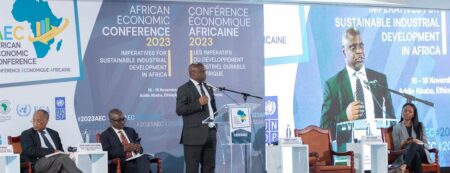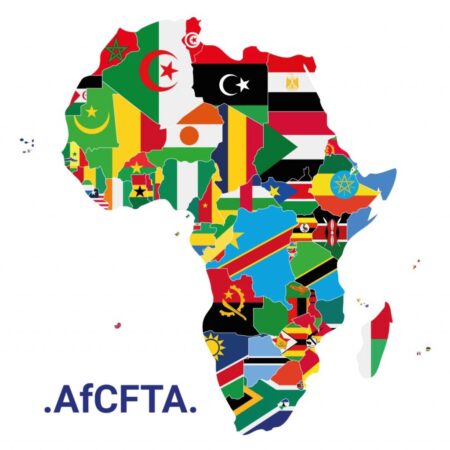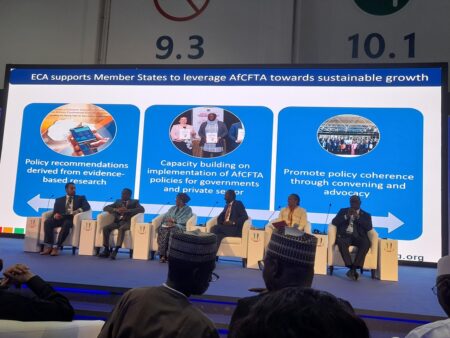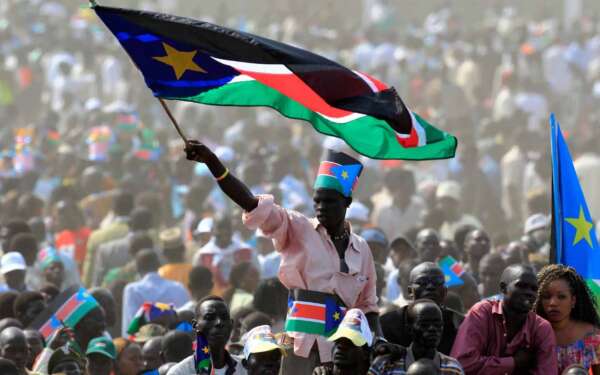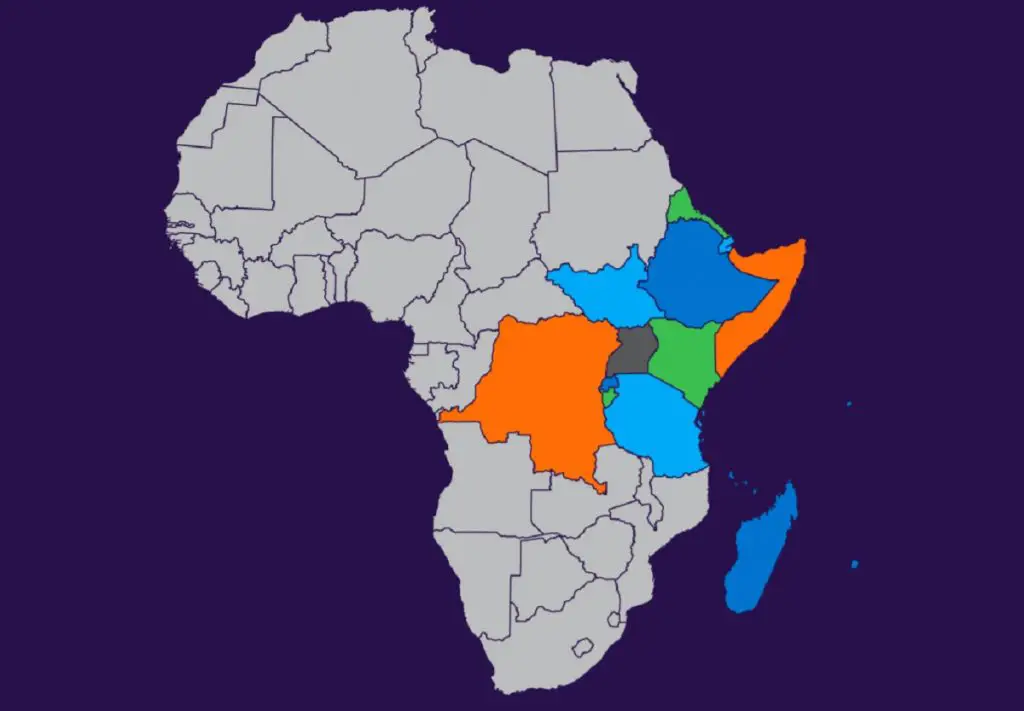- Wärtsilä Energy offers tips on how Africa can navigate energy transition and grid reliability
- Powering Africa: Africa’s Path to Universal Electricity Access
- Global investment trends at AIM Congress 2024: a spotlight on the keynote speakers
- South Africa’s deepening investment ties in South Sudan oil industry
- Agribusiness could drive Africa’s economic prosperity
- Dawood Al Shezawi: Why AIM Congress 2024 is the epicenter of global economic and cultural dialogues
- d.light’s 600,000 cookstoves project verified as top source of quality carbon credits
- Artificial intelligence (AI) could create a turning point for financial inclusion in Africa
Browsing: UNECA
- Across Africa, Public-private partnerships (PPP) experience varies across countries due to GDP differences, capital market size and depth.
- The UN Economic Commission for Africa ECA has been working with African countries to enhance their PPPs for infrastructure development.
- ECA has been undertaking capacity building and helping economies in Africa to mobilize resources for infrastructure development.
Public-private partnerships (PPPs) are crucial to closing the financing gap for infrastructure development in Africa, and governments and the private sector should work together to create effective PPPs, said Dr Robert Lisinge, Acting Director of the Private Sector Development and Finance Division at the UN Economic Commission for Africa (ECA).
He was speaking last week at a plenary session of the African Economic Conference 2023 on Public-Private Partnerships to catalyse infrastructure development and innovative financing for industrialization in Africa.
“Financing Africa’s infrastructure is still a big challenge faced by many countries on the continent. To …
The African Continental Free Trade Area (AfCFTA) is now widely touted as the African Union’s (AU) most audacious project. The framework ties together the most significant number of member countries of any trade agreement since the World Trade Organisation (WTO) in 1995.
The AfCFTA had become topical even before its formal launch. Members of the business community eagerly awaited the full implementation of the AfCFTA. But two years since its formal launch, how far has the AfCFTA ushered in the ‘new era’ of African integration it promised?…
- By enhancing intra-African trade, AfCFTA estimates that the continent with gain $195 billion by 2045.
- These gains are projected to be mainly realised in industry, services, agrifood, and energy sectors.
- By collaborating under AfCFTA, countries can greatly boost regional supply chains for the global electric vehicles market.
African countries need to embrace a set of reforms critical in driving Africa’s free trade plan, AfCFTA. The call comes even as more African leaders sign the agreement on the African Continental Free Trade Area (AfCFTA).
AfCFTA has the potential to transform regional trade and thereby lift billions of livelihoods in Africa out of poverty. To realise these benefits however African leaders need to go beyond blueprints.
“It is not for lack of blueprints that Africa has not structurally transformed,” United Nations Economic Commission for Africa (UNECA) Secretary-General Antonio Pedro said.
Mr Pedro was speaking at the Africa Regional Forum by UNECA on …
Of the 186.5 million people from around the world who cannot afford an energy-sufficient food diet, the vast majority are Africans.
This is according to a new report launched by the Food and Agriculture Organization of the United Nations (FAO), the UN Economic Commission for Africa (UNECA) and the African Union Commission (AUC).
Nutritious foods, such as fruits, vegetables and animal proteins, are relatively expensive when compared to staples such as cereals and starchy roots, and, the report argues, some of the reasons for this are systemic.
Evidence presented in the report shows that nearly three-quarters of the African population cannot afford a healthy diet of fruits, vegetable and animal proteins, and more than half cannot afford a nutrient-adequate diet, which provides a mix of carbohydrates, protein, fats, and essential vitamins and minerals to maintain basic health.
Even an energy-sufficient diet, which supplies a bare minimum of energy and little …
South Sudan may be the newest nation in the world but this does not mean that its economy is still too young to be noticed when its trajectory moves upwards.
The Eastern African nation is edging out giants in the region including Kenya and Uganda to become the fastest growing economy in the face of the Covid-19 pandemic. The virus has ravaged economies around the world but for South Sudan, the country is defying the effects to register a 4.1 per cent GDP growth ahead of Ethiopia and Tanzania with close to 2 per cent and Kenya with 1 per cent.
A report by the United Nations Economic Commission on Africa (UNECA) shows that the country of 11 million is outshining its regional peers which will see many countries fall below pre-2020 projections.
Read: Facebook, Google internet to exploit Africa’s online riches
The African Development Bank (AfDB) estimated the country’s …
East Africa’s economy is tremendously dynamic and until now, it has been one of the fastest-growing sub-regions in Africa since 2013.
As of 2019, before the covid-19 coronavirus pandemic, the region was expanding at more than double the continental average.
Boasting of having three of the world’s ten fastest-growing economies in 2019, the East African countries of Ethiopia, Rwanda and Tanzania, it is now time for the region to put in place measures that will assure the growth of the region post the coronavirus pandemic.
Is Kenya abandoning trading blocs’ agreements for the US?
Despite the low per capita incomes that have prevailed for decades, the region has experienced some notable social gains including East Africans living 6.7 years longer now on average than they did a decade ago.
But even with these positive trends, the region still suffers from a number of serious vulnerabilities to its ability to sustain …
The United Nations (UN) Climate Change Conference COP 25, has levitated the climate action landscape in Africa
This has led to the African Development Bank (AfDB) to join forces with 11 other international organizations to assist developing countries to build resilience against the impact of natural disasters caused by extreme weather.
The initiative comes at a rather perfect moment, especially when the region is faced with unprecedented catastrophic weather events affecting the continent’s economy.
According to AfDB, the institutions came together at the COP 25 climate change conference in Madrid on Tuesday to launch the Alliance for Hydromet Development.
Alliance for Hydromet Development
According to the World Meteorological Organization (WMO), the Alliance for Hydromet (hydrological and climate services) Development brings together major international development, humanitarian and climate finance institutions, collectively committed to scale up and unite efforts to close the hydromet capacity gap by 2030. It aims to increase …





